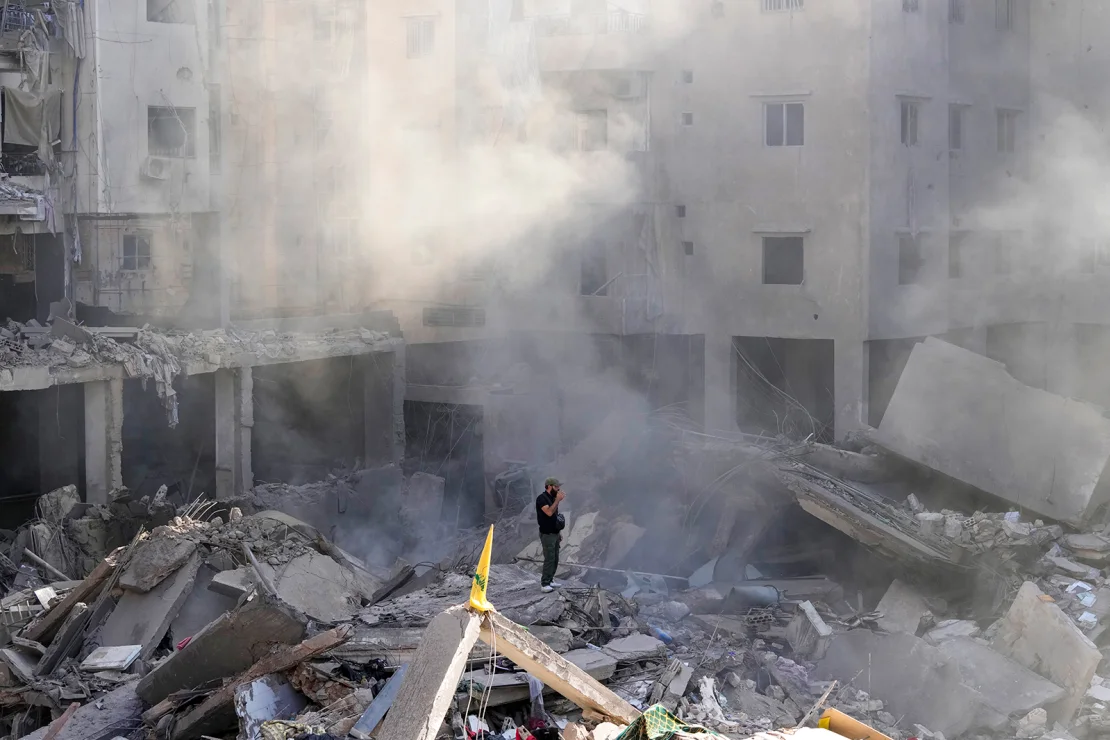Israeli troops have initiated a ground offensive in southern Lebanon, targeting the Iran-backed militant group Hezbollah. This operation marks a significant escalation in the ongoing conflict, which has persisted for nearly a year since the outbreak of hostilities in Gaza. As tensions rise, the implications for regional stability remain uncertain.
A Limited Ground Operation
The Israeli National Security Cabinet has described the incursion as the “next phase” in its conflict with Hezbollah. This is the first time since the 34-day war in 2006 that Israeli forces have crossed into Lebanese territory. Reports indicate that Israel has ramped up airstrikes, resulting in extensive casualties and displacement among Lebanese civilians. “The amount of forces and the type of forces are more appropriate to something of a limited raid,” stated an anonymous Israeli security official, emphasizing that there are “no clashes” reported thus far.
Israeli officials have attempted to downplay the extent of the incursion, characterizing it as a series of “localized raids” rather than a full-scale invasion. However, the evacuation of residents from over two dozen villages in southern Lebanon suggests a more serious military engagement. The Israeli military has communicated that its objectives focus on eliminating immediate threats from Hezbollah, particularly in the border areas.
Regional and International Reactions
The incursion has drawn varied responses from international actors. U.S. officials expressed concern over the potential for “mission creep,” warning that the operation could evolve into a prolonged conflict. President Joe Biden’s administration has called for a ceasefire, which Israeli Prime Minister Benjamin Netanyahu promptly rejected, asserting Israel’s right to defend itself.
On the regional front, nations such as the United Arab Emirates and Jordan have condemned the escalation. French Foreign Minister Jean-Noel Barrot urged Israel to refrain from further incursions into Lebanon, highlighting the potential humanitarian impact. The EU has echoed these sentiments, calling for adherence to international humanitarian law and a ceasefire.
Implications for Hezbollah and Iran
The killing of Hezbollah leader Hassan Nasrallah has raised questions about the future capabilities of the militant group and the potential involvement of Iran. Netanyahu emphasized Israel’s aim to “change the balance of power in the region,” indicating that further action against Hezbollah and its allies could be anticipated. Iranian Foreign Ministry spokesperson Nasser Kanaani condemned Israel’s actions, stating that “no measures and adventurism against Iran’s national security will go unanswered.”
As hostilities escalate, the fear of a broader regional conflict looms large. The Iran-backed alliance involving Hezbollah could provoke a wider war that draws in multiple nations, exacerbating an already volatile situation.
The Humanitarian Crisis
The recent military operations have led to severe humanitarian consequences for civilians in Lebanon. The Lebanese health ministry reported at least 95 fatalities in just 24 hours due to Israeli airstrikes. The United Nations has warned of the dire situation, urging all parties to respect humanitarian law and prioritize assistance to those affected. In response to the escalating crisis, the UN’s World Food Programme has initiated emergency projects to provide food aid to up to 1 million people in need.
As Israel’s ground offensive unfolds, the long-term consequences for Lebanon, Israel, and the broader region remain to be seen. The international community is watching closely, hoping for a resolution that can prevent further bloodshed and restore stability.







